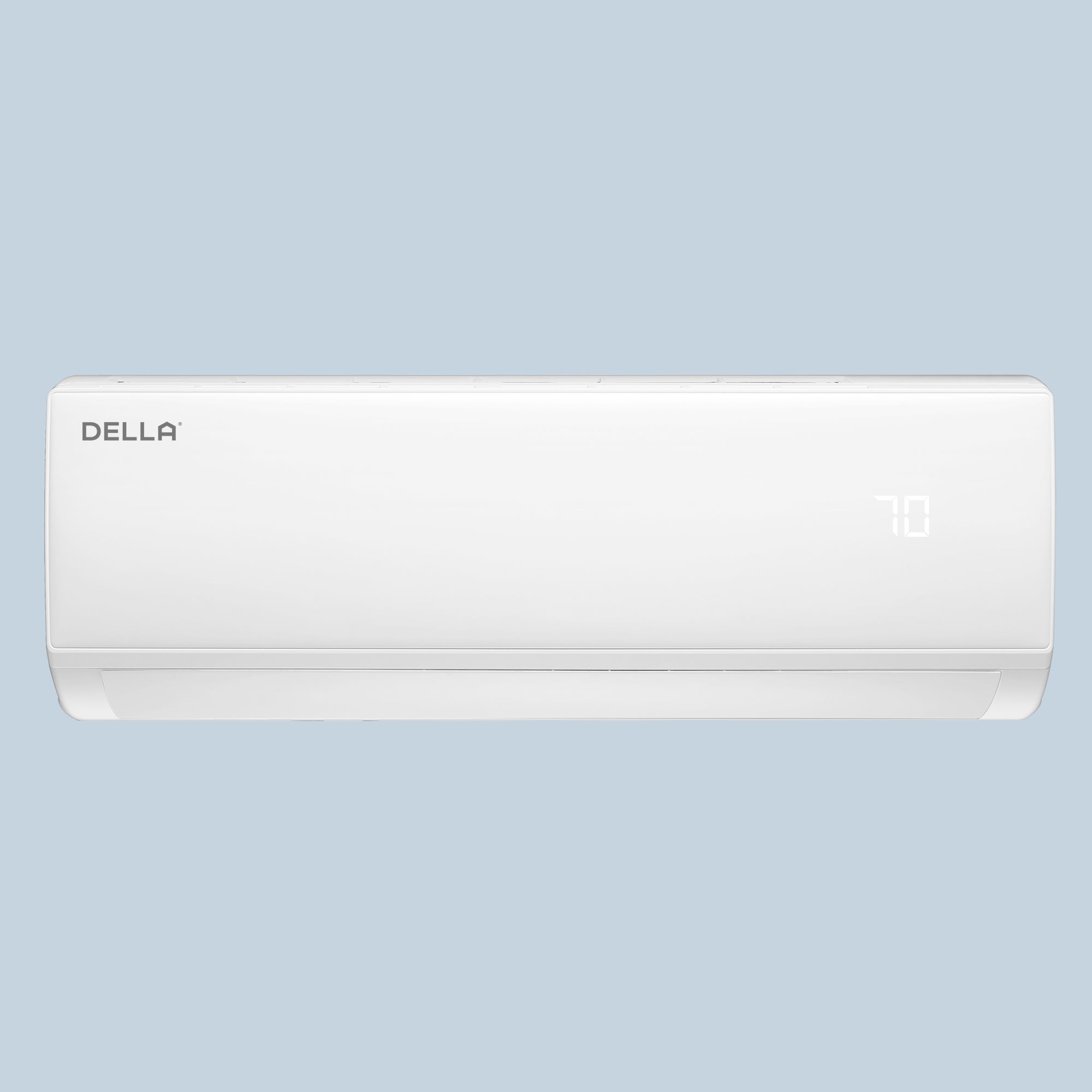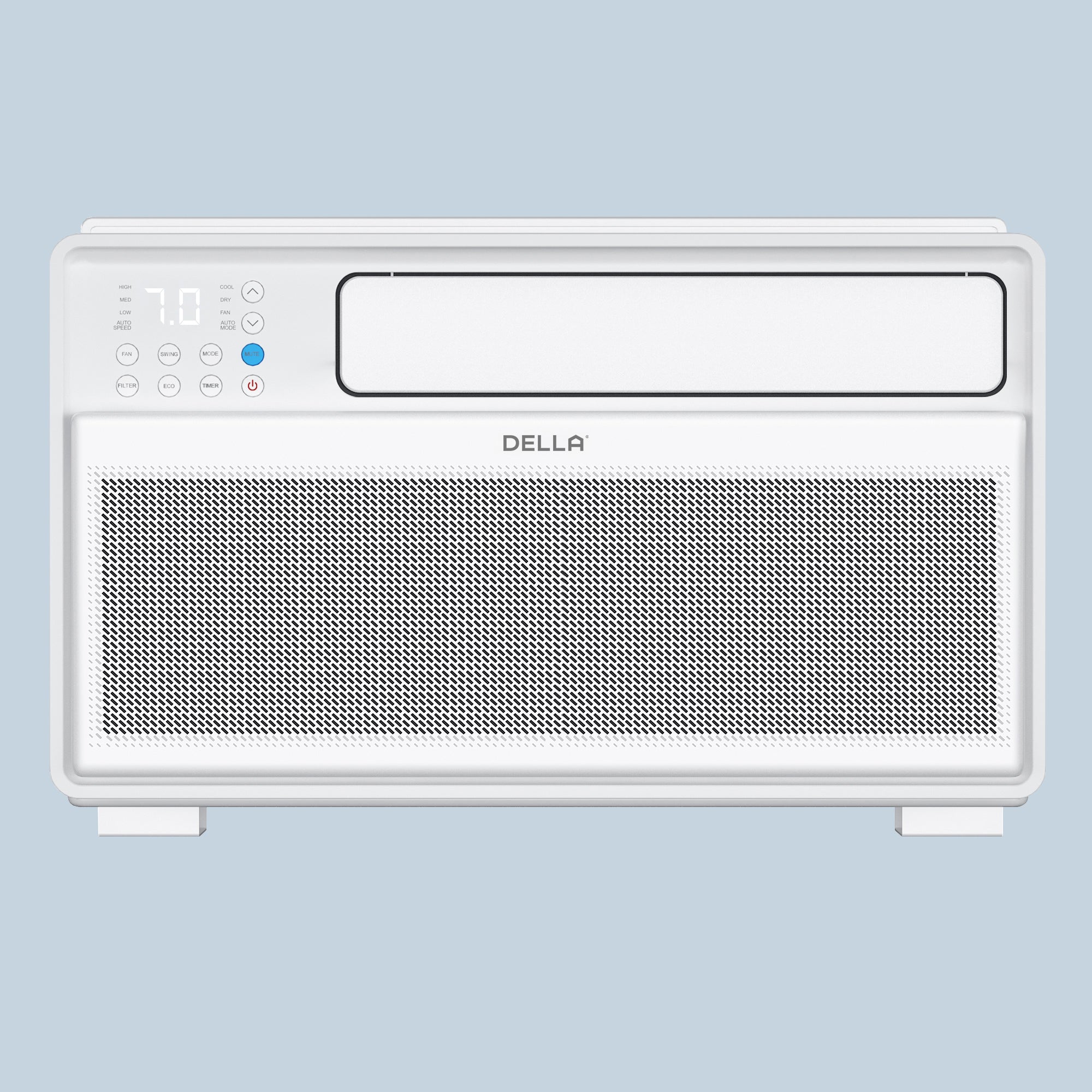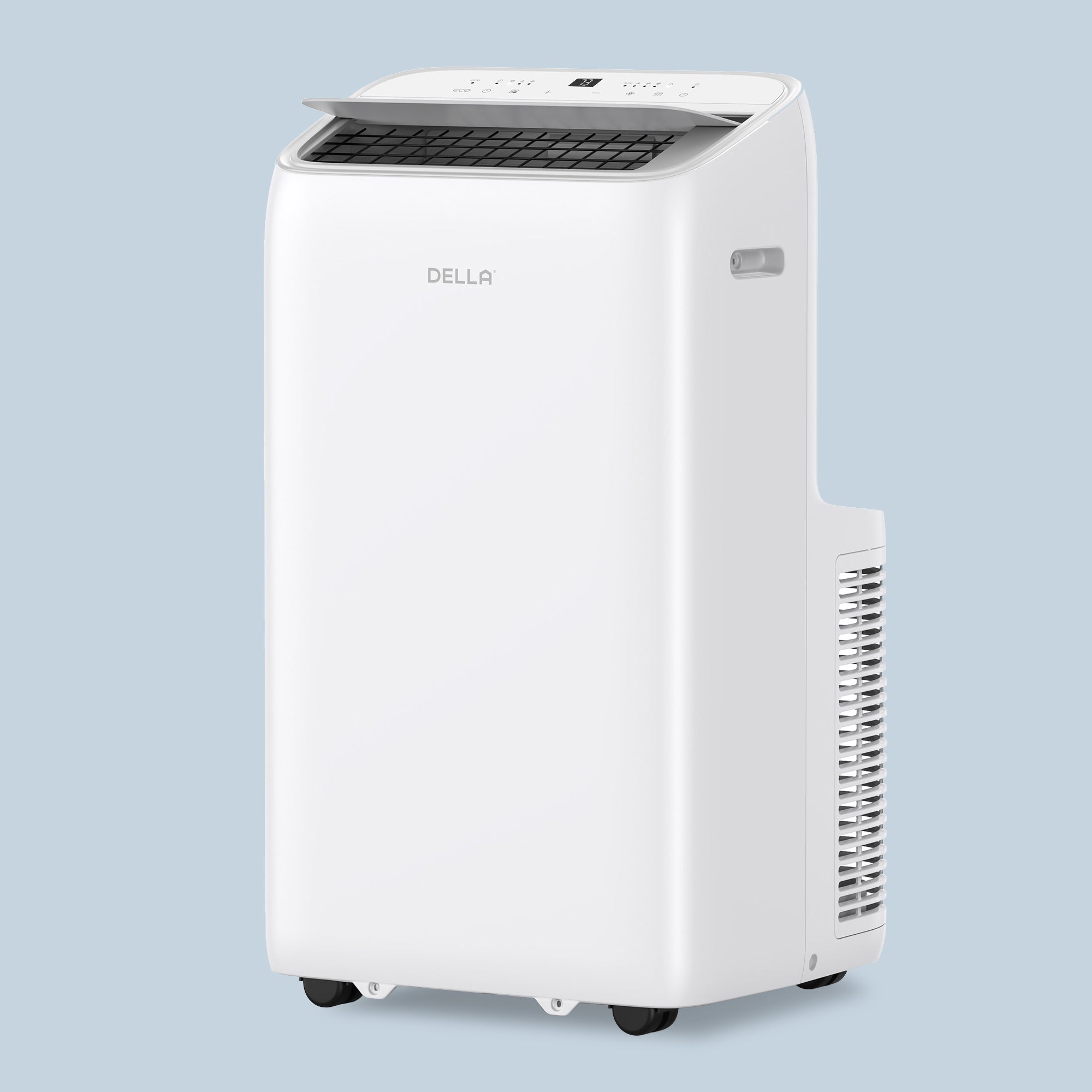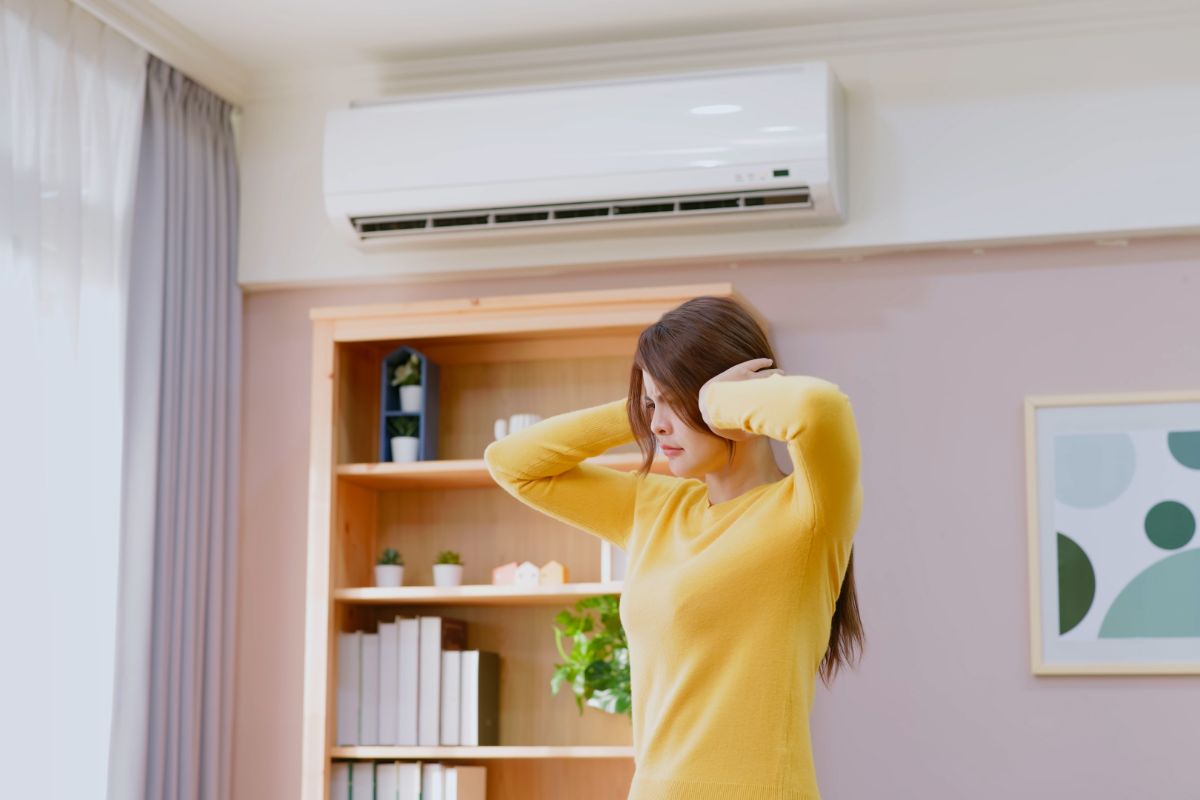When choosing your best mini split, sizing the mini splits is one of the most important thing to consider. But how do you determine the right size? Della will guide you in this article.
What is BTU in Mini Split System?
In the AC system, we use BTUs (British Thermal Units) to describe the size of an AC system. BTU is commonly used to indicate the cooling or heating capacity of an air conditioner, that is the size of an AC.
One BTU is defined as the amount of heat required to raise the temperature of one pound of water by one degree Fahrenheit.
Therefore, a higher BTU rating indicates that the air conditioner has greater cooling or heating capacity.
Next we'll size your mini split step by step!
How to Calculate Mini Split-Size?
Measure Your Room Area
Begin by measuring the area of your room in square feet, calculating by length x width.
Use a Mini Split AC Calculator
To calculate the necessary BTU for your space, you can use a simple mini split AC sizing formula:
BTU = Room Area (sq.ft.) × 20
Mini Split AC BTU Sizing Chart
Based on the above calculation, we can easily estimate the required BTU for a mini split system.
For example, a 450-600 sq.ft room is suitable for a 1-ton (12,000 BTU) mini split, a 900-1,200 sq.ft room requires a 2-ton (24,000 BTU) ductless mini split, a 1,500-1,800 sq.ft room is best with a 3-ton (36,000 BTU) mini split, and a 1,800-2,400 sq.ft room should use a 4-ton (48,000 BTU) ductless mini split. Choosing the right BTU ensures optimal efficiency and energy savings.
Della offers you the BTU sizing table for reference, which is based on years of service experience.
| BTU | Tonnage | Recommended Room Size (sq.ft) |
| 9000 BTU | 0.75 ton | 250–450 |
| 12000 BTU | 1 ton | 450–600 |
| 18000 BTU | 1.5 ton | 600–900 |
| 24000 BTU | 2 ton | 900–1,200 |
| 30000 BTU | 2.5 ton | 1,200–1,500 |
| 36000 BTU | 3 ton | 1,500–1,800 |
| 48000 BTU | 4 ton | 1,800–2,400 |
| 60000 BTU | 5 ton | 2,400+ |

Adjust your BTUs based on Room Types
The required BTU (British Thermal Units) for a mini-split air conditioning system in different rooms can vary based on the room's size and specific needs. Here are the recommended BTUs for common room types for reference:
Living Rooms
These areas typically require a larger capacity due to their size and the amount of activity. For a room of about 300-400 square feet, you might need a 9,000 to 12,000 BTU mini split air conditioner. That is, add 1000-4000 BTUs to the calculated BTUs.
Bedrooms
Smaller than living areas, bedrooms usually require less cooling capacity. For a standard bedroom of about 150-250 square feet, around 5,000 to 6,000 BTUs mini splits would be suitable.
Kitchens
When cooking in the kitchen, the kitchen temperature is often much higher than usual. So for a kitchen of about 300 square feet, you will need a 12,000 BTU ductless mini split AC system.
Basements
These spaces can vary widely in size, but for a typical area of 500-700 square feet, you might consider 12,000 to 18K BTU mini split system, depending on the level of insulation and humidity.
Home Offices
For a smaller home office, around 100-150 square feet, a mini-split with about 5,000 BTUs would suffice.
Bathrooms
Generally small, a bathroom might only need around 2,000 to 4,000 BTUs, depending on its size and humidity levels.
Covered Patios and Sunrooms
You can consider these areas similar to living rooms if they are enclosed and insulated. That is, for about 300-400 square feet, you might need mini split AC system around 9,000 to 12,000 BTUs.
Garages
If the garage is used as a workshop or commonly occupied space and measures around 400-500 square feet, it could require a mini split air condition of around 9,000 to 12,000 BTUs mini split AC.

7 Factors That Affect BTUs
Except for considering room types, you should also consider these 7 factors for your reference:
Ceiling Height
Standard calculations are based on an 8-foot ceiling. If your ceiling is higher, the air conditioner will need to cool or heat more air. For each additional foot in height, increase the BTUs by about 12.5%.
Sunlight
Rooms with more windows or those facing south get better light, but they also get hotter during the day. If the room gets more sunlight, increase the BTUs by 10%; conversely, if the room gets less sunlight, decrease the BTUs by 10%.
Climate
Your geographical location determines the extreme temperatures in your area, which affects the mini-split size needed. For example, if you live in hotter states like Florida or Texas, increase the BTUs by 10% to meet additional demand. However, if you live in colder states like Minnesota or New York, you might need an air conditioner with better heating capacity.
Insulation Quality
Well-insulated rooms retain temperature-controlled air better, reducing the load on the mini-split system. In poorly insulated rooms, increase the BTU capacity to account for greater energy loss.
Occupancy
Crowded spaces can feel stuffier. Therefore, if a room often has more than two occupants, add about 600 BTUs for each additional person.
Other Heat Sources
Besides kitchen appliances, many household electronics also generate heat, such as computers, TVs, and projectors. More electronics mean you might need more BTUs.
However, you can also consult professional air conditioner manufacturers for help. Della can calculate the most suitable air conditioner size for you based on your home's layout.
Is It OK to Oversize or Undersize Your Mini Split?
Intuitively, people might assume that a higher BTU is always better for an air conditioner. However, this is not the case.
If you undersize your ductless mini split, the air conditioner will need to run at high loads for long periods, which may:
-
Resulting in overly dry indoor air.
-
Increasing electricity consumption.
-
Accelerating equipment aging.
Conversely, if you oversize your mini split AC, it will run short cycles frequently to maintain the set temperature, which may:
-
Resulting in rooms being too hot or too cold consistently and reducing comfort.
-
Leading to too short operating times to reduce indoor humidity levels.
-
Increasing power consumption due to frequent short cycling.
-
Accelerating equipment aging.
In Conclusion
Calculating the right size of mini-split air conditioner for yourself isn't complicated, but you need to take some time to think about it. Doing so can not only improve the efficiency of your air conditioner and save you costs, but more importantly, it can maximize your comfort during the summer!
As a professional mini split AC manufacturer, Della aims to create a more comfortable life for every consumer with our new generation of air conditioners. Whether you're looking for an air conditioner for a small room or a larger space, we have options to suit your needs. If you are interested in our air conditioners, please feel free to check them out and contact us. We are all ears!
Read More:
8 Steps to Install a Mini Split Air Conditioner Easily
How Do Portable Air Conditioners Work? Efficient Cool Guide
How to Clean a Window Air Conditioner: A Step-by-Step Guide
How To Vent A Portable AC Without A Window?
How to Clean Your Mini Split AC? Here's What You Have to Know








LEAVE A COMMENT
All comments are moderated before being published.
This site is protected by hCaptcha and the hCaptcha Privacy Policy and Terms of Service apply.